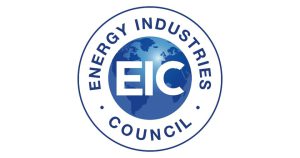LONDON/WAM
The Middle East is on course to take $75.63 billion of investment in renewable energy projects through to 2030. This is according to a new report released on Tuesday by the Energy Industries Council, one of the world’s largest energy trade associations for companies supplying goods and services to the energy industries worldwide.
These investments involve 116 renewable energy projects, which are tracked by the EICDataStream database, and forecasted to come on stream between 2025 and 2030. These span solar power, onshore wind, hydro, hydrogen production, carbon capture utilisation and storage (CCUS), geothermal energy, and battery and energy storage systems.
While the region’s clean energy investments have increased exponentially, the International Energy Agency estimates that only 20 percent of the allocated energy investments in the Middle East will be channelled to renewables, while the lion’s share of the money is still spent on the oil and gas sector. The region remains a global powerhouse in hydrocarbon production, supported by abundant gas reserves and competitive pricing that are expected to maintain their critical role as a transitional energy source.
The dual approach of investing in renewable energy projects, while also improving traditional energy infrastructure, reflects the complexity of the region’s transition, according to Aqilah Shahruddin, the report’s author. “Most spending is understandably going to oil and gas, but we are seeing cleantech projects in hydrogen, solar, wind, and carbon capture. So, it’s a balancing act between producing clean energy and maintaining the region’s dominance in the global hydrocarbon market.”
Forecast data from the EIC suggests that, though renewables are being steadily added to the mix, oil and gas will dominate for many years yet.
“The Middle East is a key focus for the EIC and the number of cleantech projects in the pipeline makes it more relevant for years to come,” said Ryan McPherson, EIC’s Regional Director for the Middle East and Africa. “We are very actively engaged in supporting the region’s energy transition with our project data, reports and industry events.”
 The Gulf Time Newspaper One of the finest business newspapers in the UAE brought to you by our professional writers and editors.
The Gulf Time Newspaper One of the finest business newspapers in the UAE brought to you by our professional writers and editors.
